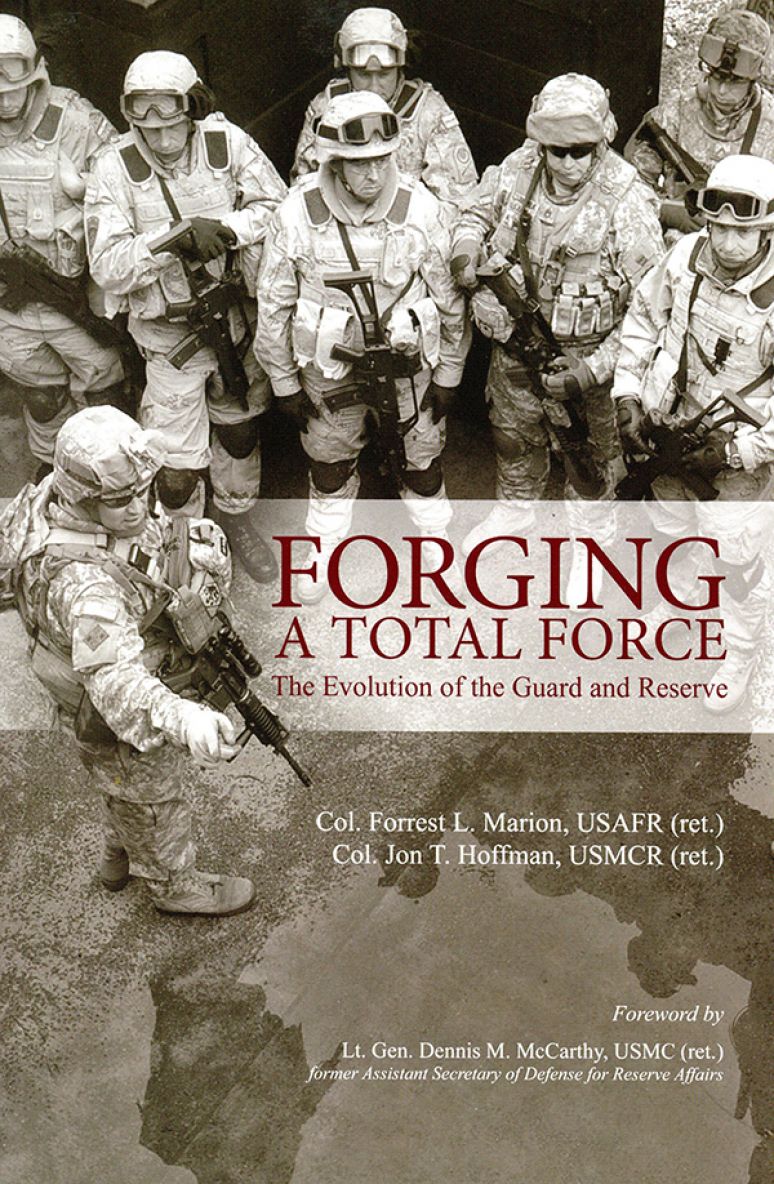English language
Published 2018 by United States Government Printing Office.

English language
Published 2018 by United States Government Printing Office.
Forging a Total Force traces the evolution of the Guard and reserve from the Revolutionary War-era militias to today's operational reserve, an integral part of the nation's total force. In the early republic, the ideal of a citizen-solider, capable of taking the field with little or no training, predominated. The realities of modern combat slowly made it clear that a more professional force was required, but policy changes failed to keep up with that changing necessity. The nation struggled to provide adequate training and equipment to the reserve component throughout the Cold War until the idea of a Total Force, which integrated regular and reserve components, emerged and was achieved. It wasn't until the defense buildup of the 1980s that the ideal of a combat-ready reserve became reality. The core of this book focuses on what came next, from 1990 to 2011, with particular emphasis on the decade after 9/11. …
Forging a Total Force traces the evolution of the Guard and reserve from the Revolutionary War-era militias to today's operational reserve, an integral part of the nation's total force. In the early republic, the ideal of a citizen-solider, capable of taking the field with little or no training, predominated. The realities of modern combat slowly made it clear that a more professional force was required, but policy changes failed to keep up with that changing necessity. The nation struggled to provide adequate training and equipment to the reserve component throughout the Cold War until the idea of a Total Force, which integrated regular and reserve components, emerged and was achieved. It wasn't until the defense buildup of the 1980s that the ideal of a combat-ready reserve became reality. The core of this book focuses on what came next, from 1990 to 2011, with particular emphasis on the decade after 9/11. The Persian Gulf War demonstrated both the effectiveness of the reserve and the challenges it continued to face. The post-Cold War drawdown during the 1990s made the smaller active component more dependent on the reserves than it had been since the nation's founding. The reserve component proved itself yet again in the wars following 9/11, but also became strained as it became clear just how much the nation depended on its Guard and reserve. Finally, the authors detail the policy changes made midstream in an attempt to address issues with the overextended force, such as balancing training and deployment with civilian lives and careers, providing health care to reservists, and integrating the active and reserve components. The authors conclude by detailing the issues policymakers will face as they forge ahead with citizen-soldiers serving as an operational force.